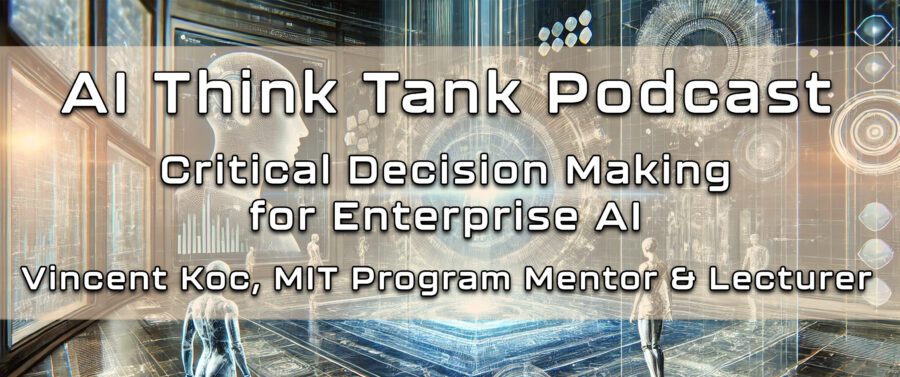
Long-Term Implications and Future Developments of AI in Business Management
In a recent podcast episode of the AI Think Tank, Vincent Koc, Program Mentor at MIT, highlighted the importance of not only focusing on technological advances but also addressing the human and procedural elements essential for success. Not paying attention to these aspects can create challenges for businesses as they navigate new technologies, especially as the pace of innovation quickens.
Adapting to the Pace of Change
Long-term, enterprises must be prepared to adapt to these changes swiftly. With technology advancing at an unprecedented pace, companies must ensure that training and development programs are in place to ensure employees can keep up. If not, businesses risk becoming obsolete or losing competitively. Vincent Koc also suggested that leaders should be increasing and evolving their skills tenfold each year to keep up with these changes.
Rethinking AI Strategy
While AI certainly holds promise for enhancing productivity and efficiency, Koc warns against viewing AI systems as direct human replacements. Such an approach could potentially inhibit the possibilities offered by AI. Therefore, businesses need to rethink their strategies, understanding that AI can play a complementary role to human skills and abilities rather than replacing them entirely. If this mind shift happens, the enterprise can unlock new levels of creativity and innovation.
The AI-First Team
To succeed in the AI era, businesses need to visualize what an AI-first team might look like and how to function optimally. This team structure would likely include a mix of data scientists, AI specialists, and other roles critical to leveraging the possibilities AI offers. As Koc pointed out, this approach requires a shift in organizational design, similar to the past transition from cubicles to open workspaces.
Actionable Advice for Enterprises
- Focus on Training: Invest in ongoing training and development programs to ensure your team can adapt to rapid technological changes.
- Rethink AI Strategy: Stop viewing AI as a direct human replacement. Instead, understand it as a tool that can complement and enhance human abilities.
- Build an AI-First Team: Envisage what an AI-first team would look like in your organization and take steps to make it happen. This approach includes creating new roles and reconfiguring team structures as necessary.
Conclusion
While AI indeed presents significant challenges, with the right strategy, training, and an open mindset, enterprises can unlock its vast potential. By focusing on people and processes as much as tech, companies can face the AI era confidently and thrive.
